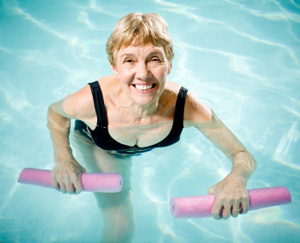Gluten Free
What does following a gluten-free diet mean? That you're embarking on an easy diet with a wide range of health-promoting effects. Instead of dwelling on what you’re giving up, consider that you’re going to enjoy a whole new world of delicious food options to meet your special dietary needs. You’ll be eating seasonally, choosing more fresh fruits and vegetables, focusing on meats, seafood, poultry, legumes, lentils, corn, and rice, and discovering fascinating ancient grains such as quinoa, amaranth, and millet. You’ll be able to eat potatoes, eggs, most cheeses, even chocolate (!)—and enjoy them without guilt because you’ll be taking good care of your body. In fact, you’ll probably end up eating—and feeling—better than ever!
Visit this page for more information about living Gluten Free
---
We carry a large variety of gluten free items, the brands listed below represent just some of the offerings we carry















More Diets
- By Maureen Williams, ND
Never Too Late: Exercise for Seniors Still Important
An active mind and body are essential quality-of-life elements for everyone, and this connection holds true for seniors in care facilities. Institutional life can lead to a downward spiral of diminished independence, lack of physical activity, declining physical and mental function, and reduced quality of life. A study found that exercise programs developed specifically for institutionalized seniors and adaptable for those with thinking (cognitive) and physical disabilities were helpful in maintaining health-related quality of life.
The study, published in Archives of Internal Medicine, included 160 people, age 65 and older, living in nursing care facilities. The participants were randomly assigned to one of the following groups:- An adapted tai chi exercise program, 30 minute sessions four times per week, involving exercises that emphasized body awareness, weight shifting, alignment, and coordination.
- A cognition-action program, 30- to 45-minute sessions twice per week, involving guided stretching, resistance, balance, and weight-shifting exercises presented so they were clearly applicable to daily life.
- A control group that received usual care for six months.
Even a little bit of low-intensity exercise each week can benefit seniors
A little exercise, a big difference?
At the 6- and 12-month follow-ups the researchers noted the following observations:
- After six months, people in the exercise groups scored the same as before on tests measuring their ability to perform activities of daily living (ADL), while the scores had decreased (become worse) in people in the usual-care group.
- After 12 months, there were smaller declines in ADL scores in the exercise groups than the usual-care group, though the differences were not statistically significant.
- Some specific ADL differences were noted at 12 months: walking abilities were better preserved in the cognition-action group, continence was better preserved in the tai chi group, and eating was better preserved in both groups compared with the usual-care group.
- Scores on physical function tests were unchanged at six months and decreased less at 12 months in the exercising groups compared to the usual-care group. These differences were more pronounced in the cognition-action group.
- Overall neuropsychiatric test scores, measuring symptoms such as agitation, depression, anxiety, and apathy, declined in the usual-care group but improved slightly in the exercise groups at both the 6-month and 12-month assessments. These differences were also slightly more pronounced in the cognition-action group.
Exercise that meets the needs of seniors works best
“Exercise programs offer promising benefits for the prevention of health-related quality of life decline in institutionalized elderly persons,” the study’s authors conclude. “The cognition-action intervention, which included an adapted guidance for physical activity, tended to provide better and more sustained results than the adapted tai chi intervention.”
Based on this study, it seems that even a little bit of low-intensity exercise each week can benefit seniors, especially when the exercise is adapted to their capabilities and teaches useful skills that aid in life’s daily activities.
(Arch Intern Med 2010;170:162–9)












